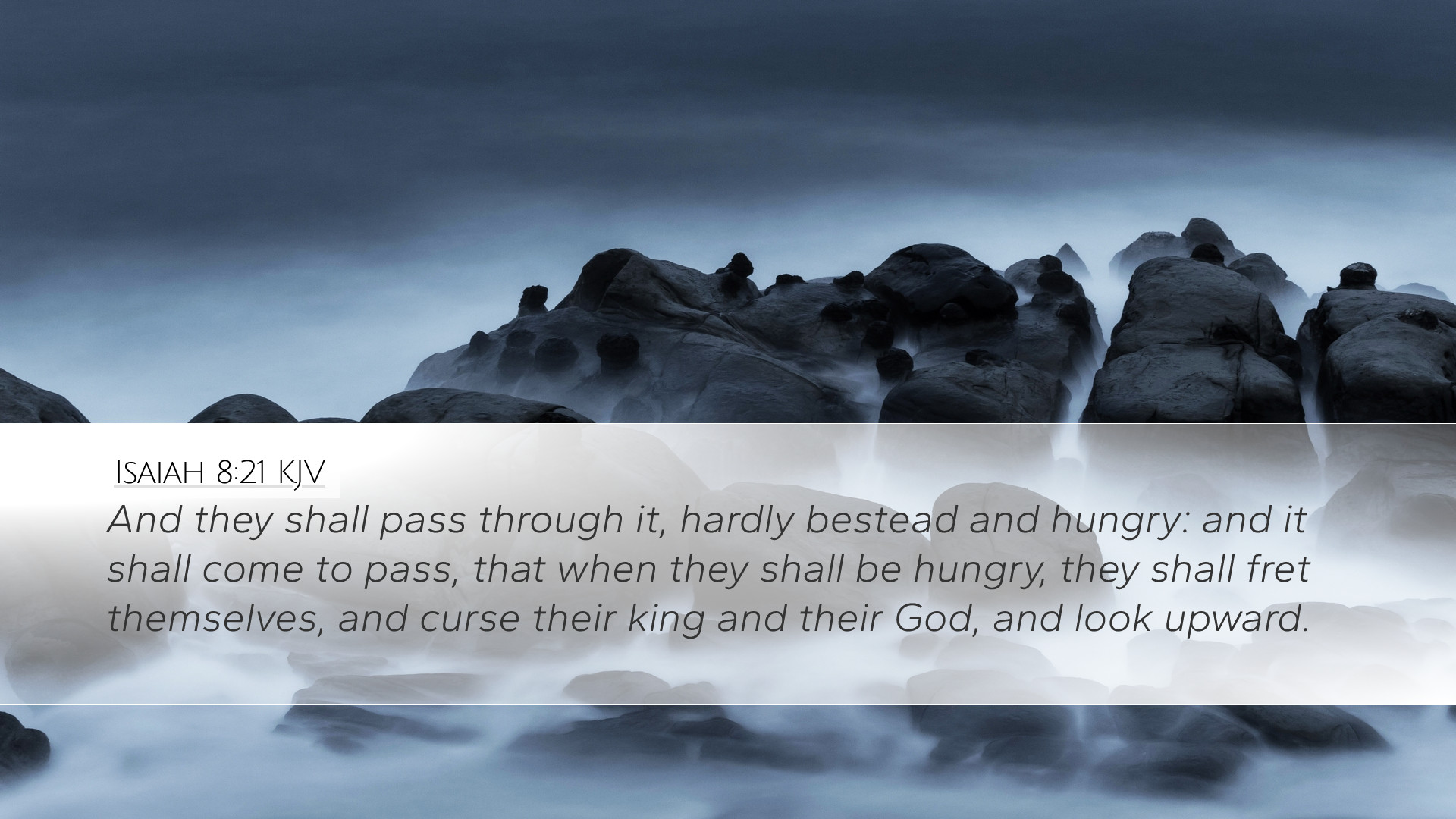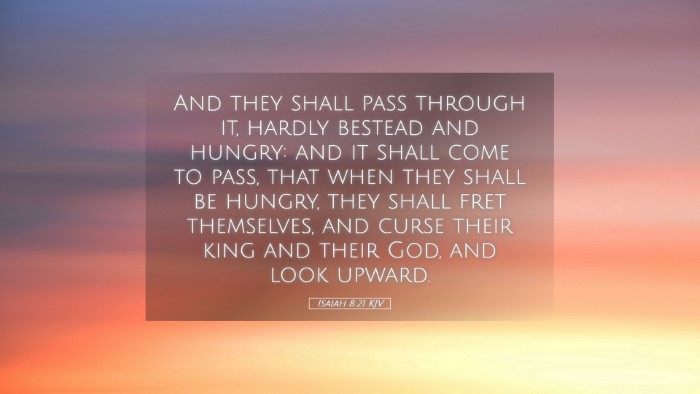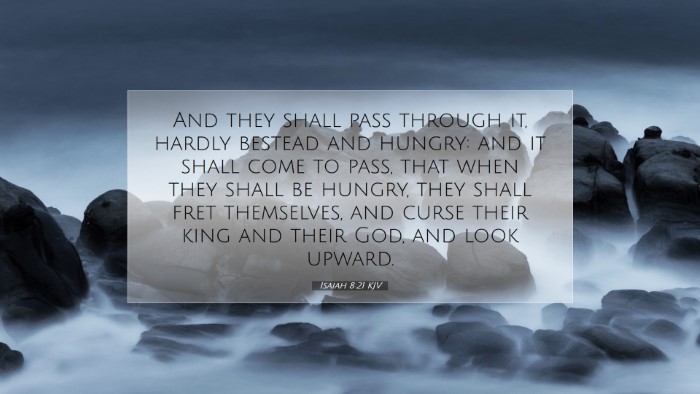Commentary on Isaiah 8:21
Isaiah 8:21 states:
"And they shall pass through it, hardly bestead and hungry: and it shall come to pass, that when they shall be hungry, they shall fret themselves, and curse their king and their God, and look upward."
Introduction
This verse serves as a profound warning rooted in the socio-political issues facing Judah at the time. The prophetic message of Isaiah explores themes of divine judgment, the consequences of turning away from God, and the resulting anguish that envelops a nation in crisis.
Contextual Background
In Isaiah 8, the prophet speaks to a disobedient people, a society grappling with fear and political unrest. The northern kingdom of Israel has already succumbed to its fate, facing invasion and conquest. Judah's surrounding milieu is laden with trepidation, compelling the people to seek alliances with foreign powers rather than relying on their God.
Exegesis of Isaiah 8:21
The Condition of the People
According to Matthew Henry, the phrase "they shall pass through it" suggests a people journeying without purpose, struggling through the consequences of their choices.
- Hardly Bested: This expresses the idea of extreme distress and inadequacy. The people are depicted as aimless and without physical sustenance.
- Hungry: The literal hunger also symbolizes a spiritual starvation. When a nation turns away from God, it ultimately suffers from both physical and spiritual deprivation.
Human Response
Isaiah further conveys the inevitable human reactions to dire circumstances:
- Fretfulness: In their anguish and adversity, the people grow restless and agitated, reflecting a lack of trust in God's provision.
- Cursing Their King and God: Albert Barnes notes that this response illustrates a fundamental breakdown of loyalty and faith, as people turn their anger towards authority figures and ultimately their Creator.
- Looking Upward: This denotes a sense of desperation. Instead of seeking God earnestly, their gaze is one of frustration. They look up, possibly in search of help, but with a mixture of blame and indignation.
Theological Insights
God's Judgment
Isaiah 8:21 is a reflection of the broader theme of divine judgment prevalent throughout the Book of Isaiah. The suffering of the people is not arbitrary but points to the consequences of idolatry and rebellion against God. Adam Clarke emphasizes that the despair experienced is a direct result of forsaking divine guidance.
The Role of Leaders
This verse implicitly critiques the leadership of the nation. The leaders are seen as failures in guiding their people towards God. When the state fails to recognize God’s sovereignty, the populace suffers, leading to chaos and disillusionment.
Application for Today
Spiritual Hunger
For contemporary readers, this verse serves as a profound reminder of the spiritual famine that accompanies a disconnection from God. In times of hardship, it is tempting to turn to earthly institutions for solace instead of seeking divine help. Pastors and theologians must encourage congregations to look to God amidst struggles and not to succumb to fretfulness or blame.
Trusting God in Distress
The hymn writer captures the essence of faith in hardship; "When I am weak, then I am strong." Literally and spiritually, hunger should lead individuals back to reliance on God rather than a blaming mindset. A pastor’s role is to guide believers in navigating these turbulent waters by cultivating faith and trust in God's inexhaustible resources.
Conclusion
Isaiah 8:21 paints a poignant picture of the consequences of straying from faith in God. The imagery of hunger and discontent provides a stark warning for both ancient Judah and modern believers. It challenges us to reflect on our source of strength during difficult times and encourages a return to divine dependence, fostering a deepened commitment to God amidst life's trials.


